Louis Koo: The Leading Man
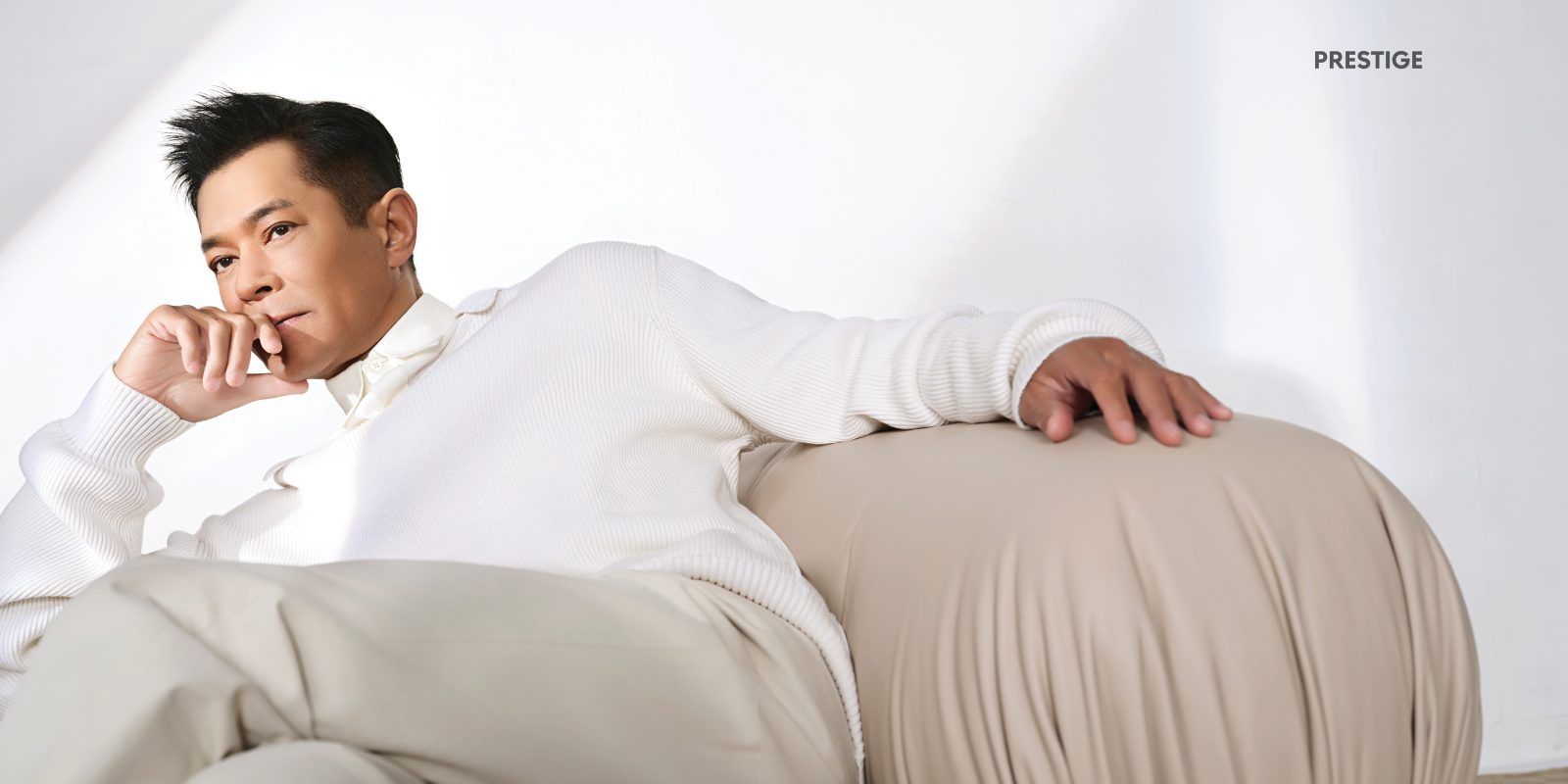

After a three-decade-long career in cinema, Louis Koo tells Prestige why the Hong Kong film industry is due for a comeback, and what it will take for it to command a global audience once again.
Photography and creative direction PAUL TSANG
Styling BHISAN RAI
Make-up CARMEN MAN
Hair DAN TAM @04
Styling assistant PRIMA RAI and JHOSHWA LEDESMA
Photography assistants CHOW CHUN YAN and TOMMY NG
“Eleven years,” says actor, producer and all-round cinema titan Louis Koo, as he reflects on the Hong Kong film industry’s recent past. “We haven’t had a feature film reach the Cannes Film Festival in 11 years, so you can imagine my excitement and pride when I represented our city in France this year.”
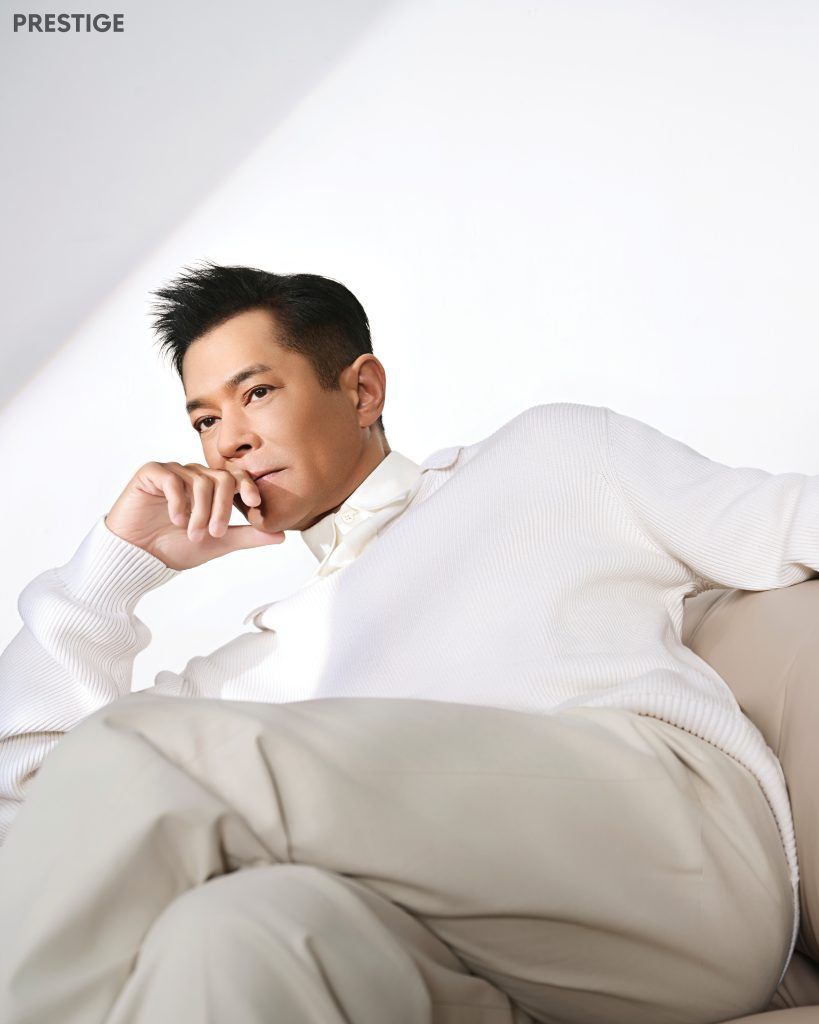
In early May, Koo’s most recent project, Twilight of the Warriors: Walled In, premiered in Hong Kong – and after only 62 days, it had become the highest-grossing domestic film in the industry’s history, raking in more than HKD 110 million at the box office. The expertly choreographed action film, directed by the award-winning Soi Cheang, follows two groups of youngsters under the lead of Koo’s Tornado and Sammo Hung’s Mr Big as they fight for their lives within the impenetrable Kowloon Walled City. Released to critical acclaim, with many hailing it as one of the best local films of the past decade, it combines incredibly intricate sets with breathtaking action sequences that recall the glory days of Hong Kong cinema.
“It took a lot of work to build the set,” Koo explains. “We built two, one in Yuen Long and one in Sai Kung, and both could be modified whenever we wanted to. They were created to be modular, so we could swap different areas around and turn them into something completely different, depending on what part of the film we were shooting. Hong Kong is quite small, so it’s very difficult to build such a large set, but we managed to find a studio big enough as well as an abandoned school that we repurposed, and we used those spaces to re-create the legendary Kowloon Walled City.
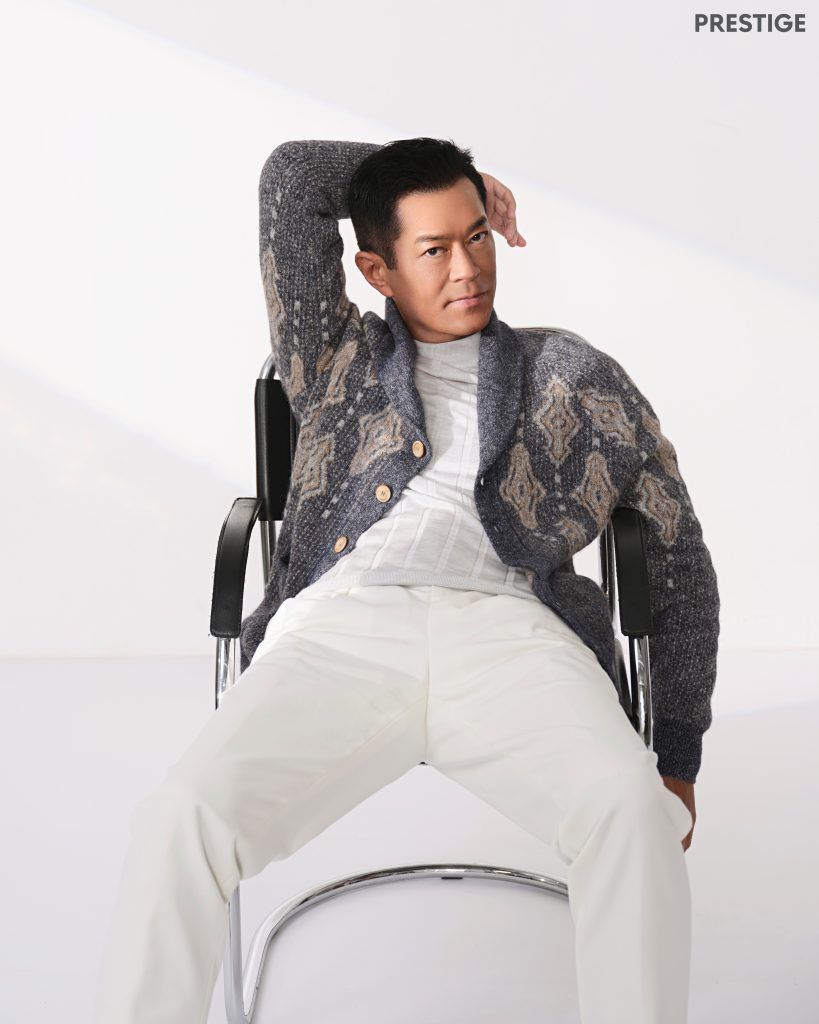

“Action-wise, it was quite a challenge too,” he continues. “I’ve shot many action movies before that involved martial arts, but this time the choreography was quite different in that it required many movements that seemingly defy the laws of physics or anatomy. So it definitely took some training – a year, in fact – and many tries to perfect.”
But the hard work paid off. Within two weeks of its premiere, Koo found himself gracing the red carpet of Cannes, along with Cheang and co-stars Raymond Lam, Tony Wu, German Cheung and Terrance Lau. The film was shown at the midnight screening, and as the credits rolled, thunderous applause broke out that lasted for 10 minutes.
“I think in recent years, Hong Kong cinema hit a low point, so to be able to bring this film to an international audience and receive that kind of response was extremely rejuvenating for us,” Koo reflects. “I was very moved during the standing ovation, to be honest. To me, it’s proof that the hard work and effort we put in and the sacrifices we made weren’t all for nothing, and that Hong Kong’s films can continue to flourish and reach a higher global standard.”
Although the re-appearance in Cannes perhaps marks a fresh start for an industry that’s been in decline for more than a decade, for Koo there was also a sense of nostalgia. “There was a very dramatic scene in the film when I punched Raymond Lam, and when it came on, the entire audience started applauding. ‘Why are they applauding?’ I thought – and laughed. I was so surprised, because even our local audience doesn’t do that any longer. I know it’s a bit different in the West – when people go to the cinema for something like Star Wars, everyone’s excited and cheering and applauding, but we never see that in Hong Kong these days. It’s something I miss, because two decades ago, people here would have that reaction too during midnight screenings, but now it’s very different. So to see and feel that kind of reaction again from an international audience was truly something extraordinary and nostalgic at the same time.”
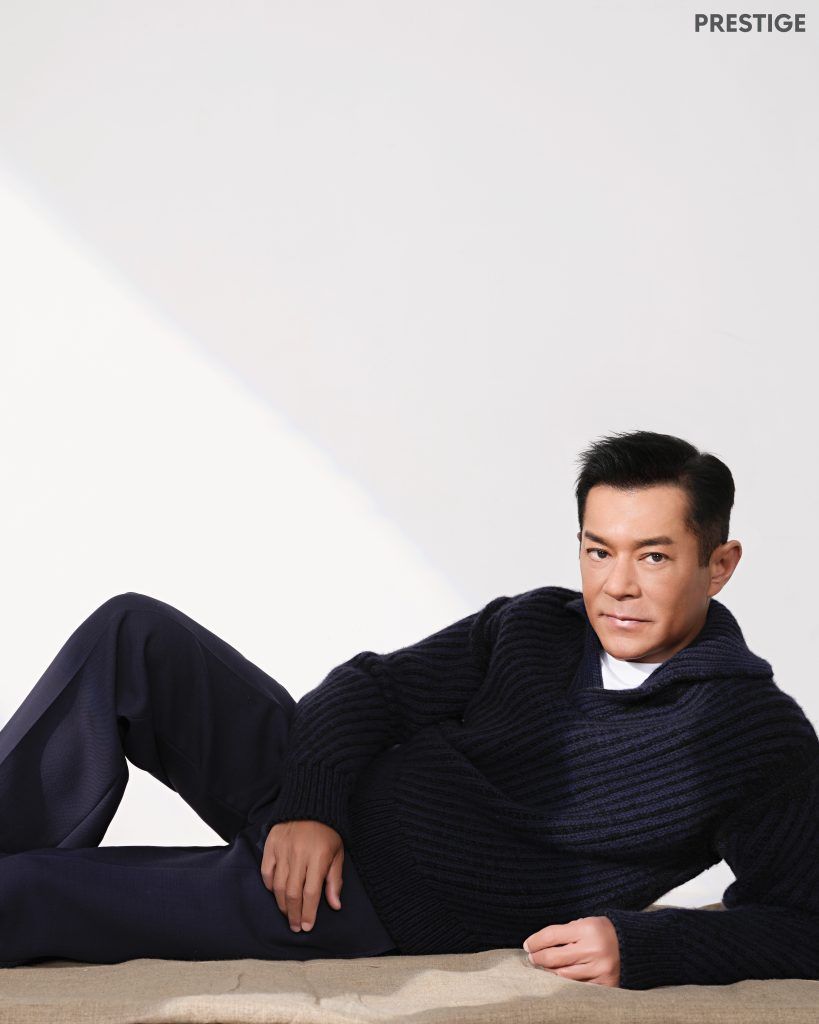
For Koo, who’s now established as a Hong Kong filmmaking powerhouse after a 30-year career, nostalgia is understandable, if not natural. Formerly a model who also took on cameo in music videos, he shot to stardom after he was signed by TVB in 1993, making his leading role debut in The Condor Heroes 95 before winning Most Popular Actor Awards for both The Investigation Files IV and A Step into the Past, all within just a few years. At the time it seemed as if he were already destined for greatness.
Asked about his early days he replies, “I never imagined I’d be where I am today. Back then, I entered the industry simply with a sense of curiosity, and I never really thought about what I’d achieve or where I’d end up. But the harder I worked, the more I learned, whether it was about acting, producing or even about life. At every stage of my career, I kept learning, and as I processed everything I’ve learned, it helped me mature and gain a wider perspective of what I do. It’s a change within me that I didn’t expect, but one that I welcome and appreciate now.
“Whether it’s winning most popular actor for one of my early TV shows or best actor for a recent film, both are related to my work in front of the camera. What I didn’t foresee was how much I’d become involved with the work that goes on behind the scenes, and that’s something I consider even more important. Creating and producing a film is very different from just acting in one and has even greater significance to me now.”
More than 110 feature films later, this transformation has led Koo to take on other roles besides those the audience sees on the cinema screen. During the past decade, he’s been at the helm of both the Hong Kong Performing Artistes Guild and the Federation of Hong Kong Filmmakers, two positions he’s immensely proud of.
“I joined those organisations before the pandemic, but Covid really inspired me to push even harder, because I saw how the film industry was in shambles at the time, and that many people had lost their jobs,” he explains. “During the lockdown, we couldn’t make any movies for two whole years, and for many of the staff working behind the scenes, it meant their livelihoods were taken away. That period made me think hard about how I could help them stay afloat and protect their jobs.”


Although it may seem that the industry has returned to normal, the effects of the pandemic lasted much longer than Koo imagined. “In my opinion, it left the movie industry even worse than how it was before. Most of us got used to streaming films at home, and the way we consume media has changed significantly. The effect this has had on the industry was something I didn’t expect, and even though we’re now running at full steam again, I don’t think we’re really doing much better than we did during the pandemic. So if you ask me why I’m motivated to chair these two organisations, it’s because I truly want to understand and help those working in the film industry, whether in front of the camera or behind the scenes.”
I suggest to him that if Twilight of the Warriors: Walled In made it to Cannes this year, surely it can’t be all that bad. “The film was a great success, but that doesn’t mean we can just keep making the same thing,” he replies. “The biggest problem we have with Hong Kong cinema is that nothing has changed over the past decades. In the past, action films sold well, but things are changing and we can’t keep relying on that genre.
We need to change and we need to adapt.
“Box offices have continued to drop in recent years, and even some of the films you’d normally consider to be international blockbusters don’t do very well. The market is so saturated, and without a sense of urgency to see films in cinemas, people just wait to stream them in the comfort of their own homes. We’re all in the process now
of figuring out how to navigate these changing times, and it’s crucial that we learn to adapt to the way the audience is now engaging our content and media.”
The issues might be more apparent now than ever but, pioneer that he is, Koo has long been adapting to this changing landscape. As early as 2013 he put his money where his mouth is by founding the One Cool Group, a company that invests both in filmmaking and rising talent. To him, these two pillars form the foundation of Hong Kong cinema’s comeback and, with it, a return to the global stage.
“I founded the company because I wanted to create films that weren’t being made in Hong Kong,” he explains. “There were a lot of genres I wanted to explore, but our film industry isn’t always so daring when it comes to trying something new, so I decided to take initiative myself to change this.”
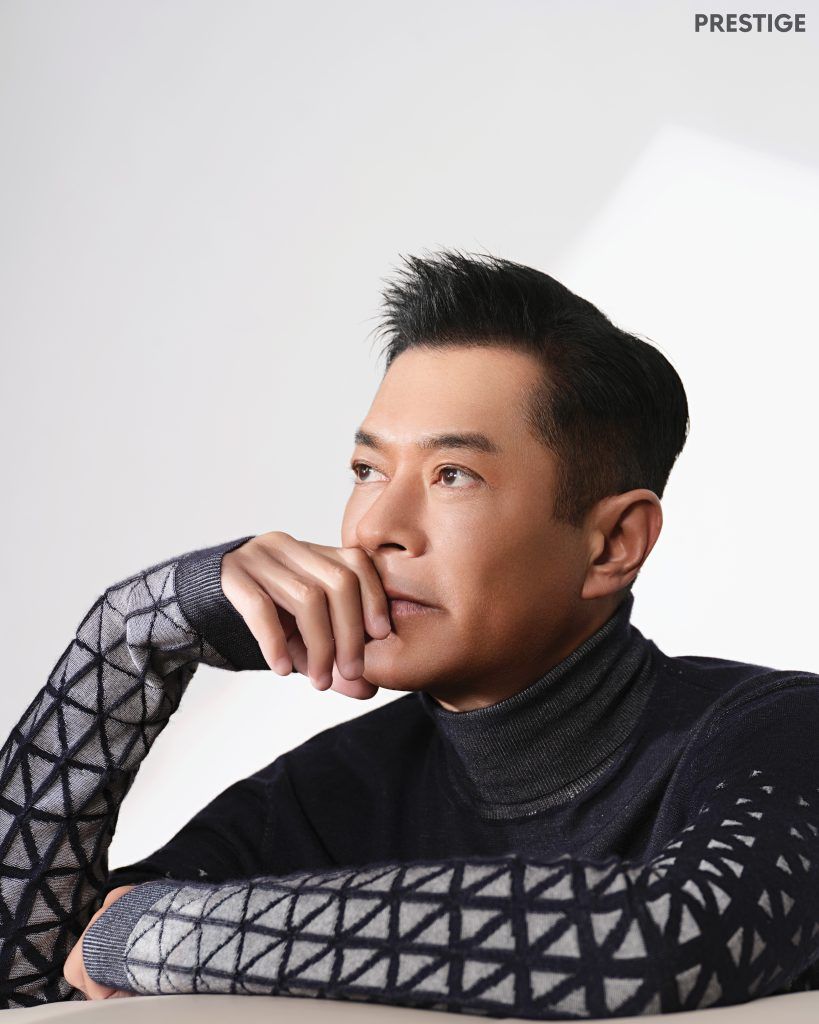
One such film is Koo’s Warriors of Future, a science-fiction action blockbuster co-starring Sean Lau in which the two actors donned futuristic, Iron Man-style suits to fight of an invading force of both aliens and robots. A devout fan of collectibles and action figures, I suggest to Koo that the international response to the film – which also spawned two incredibly detailed Hot Toys action figures that have proved popular with overseas collectors – was largely positive.
“Films like Warriors of Future are evidence we’re able to make a science-fiction blockbuster at a very high level, one that can even match Hollywood,” he replies. “But it doesn’t necessarily mean we’re able to penetrate the global market so easily, and in a sustainable fashion. The cost of making a movie like that is exceptionally high, and it’s hard for Hong Kong to do that sustainably in comparison to the West, because they’ve got the infrastructure and the familiarity with working with technology like virtual studios. Mainland China is catching up, but Hong Kong is still some way behind in this area.”
What we need to do, Koo says, is instead think about the types of movies we’re producing, and try to break free from the action-flick mould we’ve long been cast in. “To reach a global stage isn’t easy, because there are language barriers, cultural differences and even just differences in our day-to-day experience with life. If you want Hong Kong cinema to gain recognition internationally, you’ll need to create films that resonate with everyone, not just our own people, and that’s something very difficult to do. It requires an open mind from our industry and willingness to try something new, which we currently don’t possess.”
And this is what brings us to Koo’s second pillar, his call to a newer generation of talent to take up the mantle. One Cool Group currently represents dozens of local up-and-coming artists and actors, such as Bryant Mak, Jennifer Yu, Fish Liew, Yanny Chan and Miko Peng, and it’s these fresh minds that Koo believes can revitalise Hong Kong cinema.
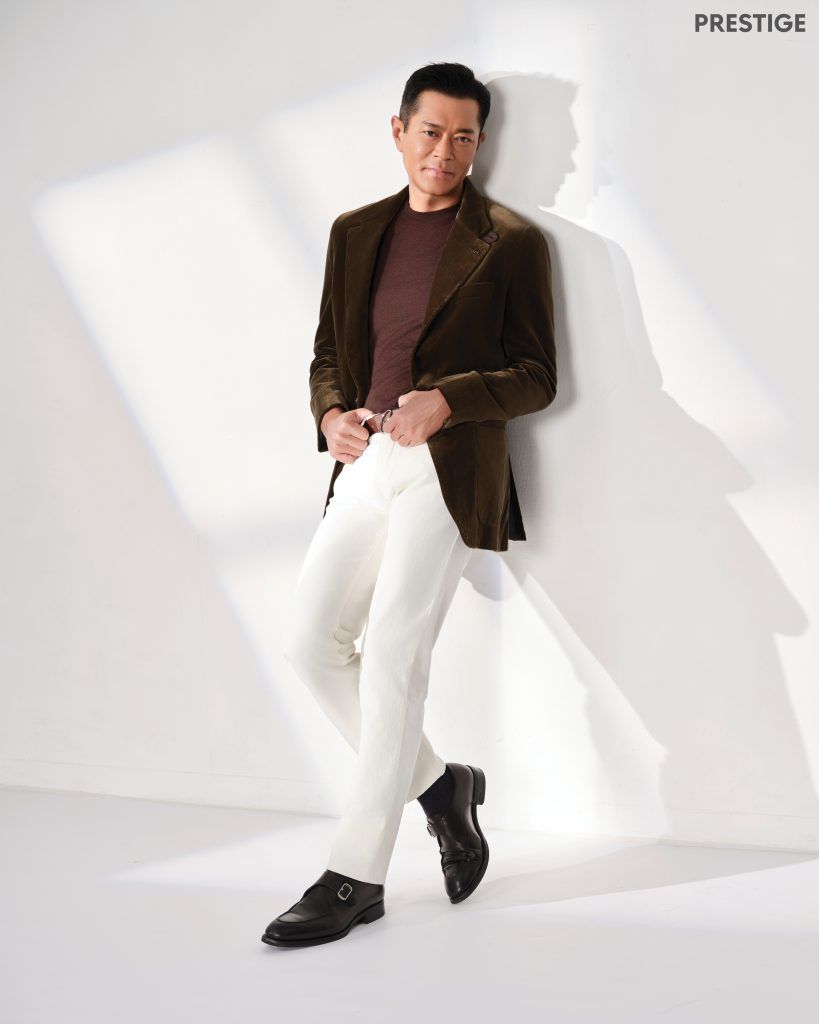

“The next generation needs to step up,” he says. “I see many younger directors thinking in a very different way from the older generation, and that’s exactly what we need. The world has an ageing population, and in a decade or so the market is going to look very different from what it is now. It’ll take a new generation of directors, producers, actors and everyone behind the scenes to inject new energy and ideas that can make Hong Kong cinema relevant and accepted by future generations, not just here but also abroad.”
And what advice would such an industry veteran give to those keen to follow in his footsteps?
“I’ve worked with many young artists and actors, and I think in many ways they might be even better than how we used to be, so I don’t think there’s much advice I need to give them,” he says, smiling. “That said, throughout my career, I’ve been fortunate that I’ve had successful films in each era, whether it’s La Brassiere, Election 2, Accident, Paradox, Warriors of Future or Twilight of the Warriors: Walled In, and I think that’s a very important lesson for new actors: to be successful, you need consistency and you need to continue doing great work, no matter what phase of your career you’re in. If you’re a one-hit wonder, it’s very difficult to last in this industry, so always keep an open mind and be eager to continuously learn and adapt.
“And, most important, if you think you’re already working hard, then work even harder.”